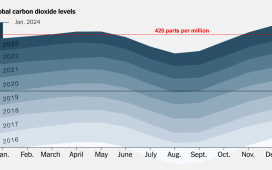Later, when it clears, children sled right down the middle of streets where adults habitually drive too fast on snow-bereft days. The kids squeal with the joy of speed and sanctioned transgression, but no one is so happy as the galloping neighborhood retrievers, their eyes alight, their shaken coats scattering diamonds in the frozen air.
Even so, snow conveys no beauty in cities or suburbs that comes even close to the magic it performs in a forest, coating every tree, every discrete branch and twig, turning the woods into a wonderland. The trunks of trees turn blacker in the wet, while the ground around them turns white then whiter still. It’s a black-and-white landscape now, a scene from a movie made in another age.
The whole world is clean, bathed in brightness. You can tell which way the storm came in by which side of the standing trees is also white, but you cannot see where the path dips or is tricked with fallen branches hidden in the whiteness. Watch your step, especially near the edges of ponds — the snow gathers so densely there that it’s impossible to see where the mud ends and the water begins.
One of the great gifts of snow in a forest is the chance to study animal tracks, to see where one deer peeled away from the group and then returned, to see where the group itself started out in one direction and then shifted to another. Animals change their minds! It is a magnificent, vibrant reminder that our wild sisters and brothers are every bit as individual as we are.
But as a metaphor for clarity and cleanness, snow inevitably falls short. Everything that lies beneath its sheltering blanket — the scarred land, the trash our species always leaves behind — is still there. The snow is only a temporary respite.
But for a moment, sometimes a few days, the woods are yet “lovely, dark and deep,” as Robert Frost so famously put it in “Stopping by Woods on a Snowy Evening.” We have promises to keep of our own — to the natural world, to our own very future — and they are as urgent as any in human history.

